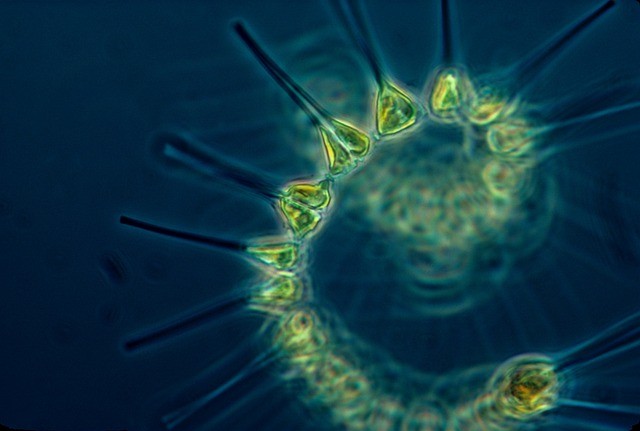Plankton, despite their small size, play a crucial role in the marine ecosystem and have a significant impact on the health and functioning of the world’s oceans. Plankton are tiny organisms that float and drift in the water, comprising a diverse community of organisms ranging from microscopic plants (phytoplankton) to small animals (zooplankton). Here’s why plankton are so important:
1. Foundation of the Food Chain:
- Phytoplankton, specifically, are primary producers that perform photosynthesis, converting sunlight and nutrients into organic matter. They form the base of the marine food chain, providing essential energy and nutrients for various marine organisms.

2. Oxygen Production:
- Phytoplankton are responsible for a significant portion of the Earth’s oxygen production through photosynthesis. They release oxygen as a byproduct of their metabolic processes, which is vital for the survival of marine life and all living organisms on the planet.
3. Carbon Sequestration:
- Phytoplankton also play a crucial role in regulating the Earth’s carbon cycle. They absorb carbon dioxide from the atmosphere during photosynthesis and convert it into organic matter. When these organisms die, some of their biomass sinks to the ocean floor, effectively sequestering carbon in the deep ocean.
4. Nutrient Cycling:
- Plankton, especially zooplankton, contribute to the cycling of nutrients in the ocean. They feed on phytoplankton and other organic matter, recycling nutrients and making them available to higher trophic levels.
5. Support for Fisheries:
- Plankton serve as a primary food source for small fish, which are in turn consumed by larger fish and marine animals. A healthy plankton population supports robust fisheries, providing sustenance and livelihoods for communities around the world.
6. Biodiversity and Ecosystem Health:
- Plankton communities are incredibly diverse, with countless species adapting to different niches and environmental conditions. Their presence and abundance reflect the overall health and balance of marine ecosystems.
7. Indicator of Environmental Change:
- Plankton are sensitive to changes in temperature, nutrient availability, and ocean acidity. Monitoring plankton populations can provide valuable insights into the health of marine ecosystems and the impacts of climate change.
8. Global Climate Regulation:
- Through processes like photosynthesis and nutrient cycling, plankton influence ocean temperatures, currents, and the Earth’s overall climate system.
Given their foundational role, disruptions in plankton populations can have cascading effects throughout the marine food web and ecosystem. Threats such as pollution, climate change, and habitat destruction can impact plankton populations and, consequently, the entire marine ecosystem. Therefore, understanding and preserving plankton is essential for maintaining the health and balance of our oceans and the planet as a whole.









